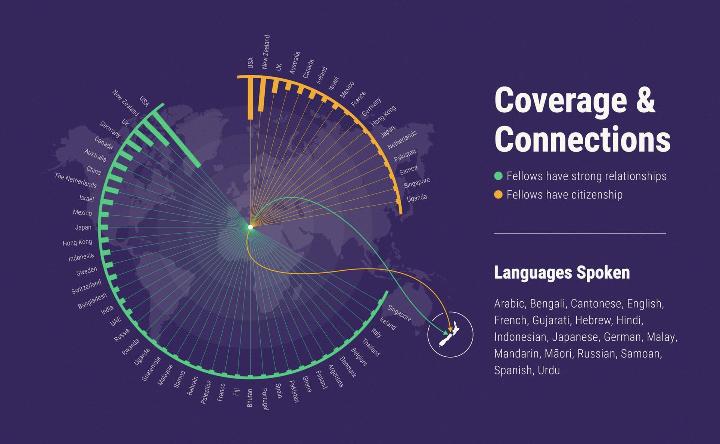In an increasingly interconnected world, access has become one of the most valuable assets an individual, organisation, or community can possess. Whether it's access to information, technology, networks, or markets, tapping into resources that were once out of reach transforms how we live, work, and innovate. But what does access mean, and why is it so crucial in today's world?
Access as a Catalyst for Innovation
Innovation thrives where there is access—access to knowledge, diverse perspectives, and the tools that turn ideas into reality. Consider the way open-source platforms have revolutionised software development. These platforms have accelerated technological advancements that benefit everyone by providing access to code and allowing developers worldwide to contribute.
In clean technology, access to cutting-edge research, funding, and global networks can distinguish between a promising idea that never leaves the lab and a breakthrough that reshapes industries. For instance, our bioenergy resource recovery plant in Nelson wouldn't be possible without access to local expertise and international collaborations. The fusion of global insights with local knowledge is where true innovation occurs.
Economic Empowerment Through Access
Access to markets and capital is another critical factor driving economic growth and reducing inequality. For entrepreneurs, particularly those in developing regions, access to funding can bridge a concept and a thriving business. Microfinance initiatives, for example, have empowered countless individuals to start businesses that support their families and contribute to the broader economy.
In New Zealand, initiatives like the Waste Minimisation Fund provide access to financial resources that enable companies like ours to develop sustainable solutions. This access doesn't just fuel business growth; it supports environmental stewardship and community well-being, creating a ripple effect of positive change.
The Social Impact of Access
Beyond the economic and technological implications, access has profound social impacts. When communities have access to education, healthcare, and digital technologies, the quality of life improves dramatically. For Indigenous communities, like our connection to whānau of Te Roroa and Ngāpuhi, access to cultural knowledge and resources is vital for preserving heritage and fostering resilience.
Moreover, access to platforms where diverse voices can be heard is essential for social justice. The ability to share stories, advocate for change, and connect with allies worldwide has led to movements that challenge the status quo and push for a more equitable society.
Bridging the Access Gap
While the value of access is clear, it's also evident that access is not evenly distributed. Bridging the gap requires intentional efforts from governments, businesses, and civil society. Investment in infrastructure, education, and policies that promote inclusivity are crucial to ensuring that more people can benefit from the opportunities access provides.
The Role of EHF in Providing Access
The Edmund Hillary Fellowship (EHF) exemplifies the power of access by connecting impact investors and entrepreneurs who are shaping the future. EHF provides a platform where innovators worldwide can access knowledge, resources, and networks. By fostering connections between individuals driven to make a difference, EHF accelerates the growth of impactful ventures and amplifies the collective potential of those working towards a better future.
Through EHF, entrepreneurs gain access to the tools and expertise they need to scale their ideas. At the same time, investors are connected to opportunities that align with their vision for a sustainable and equitable world. This ecosystem of collaboration and shared knowledge is a testament to the transformative power of access.
At Alimentary Systems, we've benefited from EHF's unique approach to providing access. By tapping into their network of impact-driven individuals, we've been able to advance our mission of creating sustainable solutions that address pressing global challenges.

Access is more than just a gateway; it's a powerful enabler of progress. In every sector, from technology to economics to social justice, accessing resources, networks, and opportunities drives innovation, empowers individuals, and transforms societies. As we look to the future, the challenge lies in expanding access and ensuring that it is equitable and inclusive so that everyone can contribute to and benefit from the advancements of our time.
By recognising and valuing access and by leveraging platforms like EHF that provide it, we can unlock the full potential of our communities, our industries, and our world.